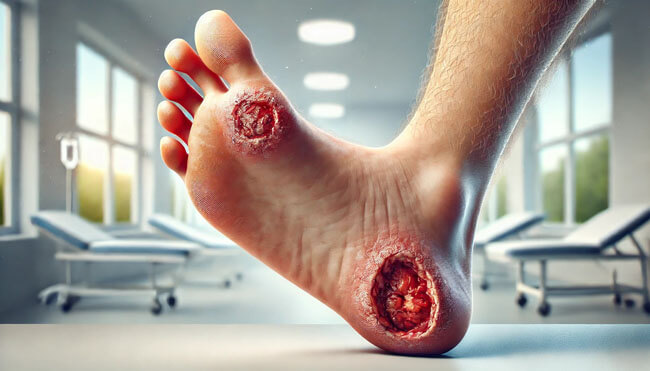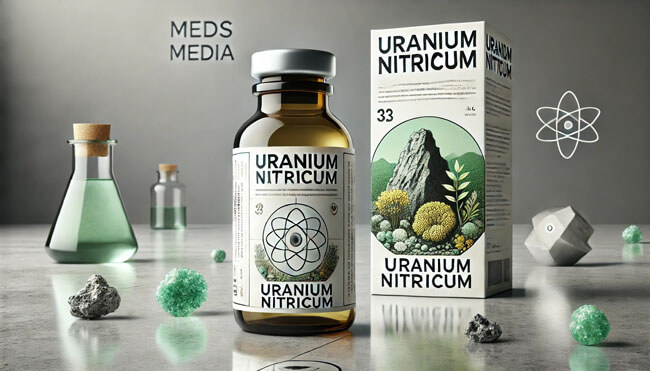
Diabetes mellitus presents with various facial symptoms that serve as significant indicators in homeopathic practice. By focusing on specific facial rubrics and corresponding homeopathic remedies, practitioners can better tailor treatments to individual patients.
1. Earthy Complexion in Diabetes
Main Indication:
A dull, earthy appearance of the face can indicate compromised metabolism and poor blood glucose regulation, common in diabetes.
Associated Medicines:
- Argentum Nitricum (Arg n.): Often indicated for individuals with an earthy or dull complexion alongside symptoms of nervous exhaustion, sugar cravings, and mental agitation.
2. Emaciation – Prominent Cheekbones in Diabetes
Main Indication:
Severe emaciation, with visibly prominent cheekbones, suggests chronic diabetes with significant weight loss and muscle depletion.
Associated Medicines:
- Uranium Nitricum (Uran n.): Highly effective for diabetes with marked emaciation and extreme fatigue, often accompanied by frequent urination and thirst.
3. Pale Face in Diabetes
Main Indication:
A pale, lifeless facial complexion is indicative of poor circulation and potential anemia, often associated with diabetes.
Associated Medicines:
- Argentum Metallicum (Arg m.): Particularly useful for pale-faced individuals with a history of diabetes and related nervous symptoms.
- Uranium Nitricum (Uran n.): Suitable for cases where paleness coexists with extreme weakness and constant sugar cravings.
4. Deep Red Complexion in Diabetes
Main Indication:
A deep red or flushed face might point to high blood sugar levels, vascular stress, or inflammation, especially in advanced diabetic states.
Associated Medicines:
- Uranium Nitricum (Uran n.): Effective for deep redness with concurrent symptoms of high glucose levels, excessive thirst, and polyuria.
5. Sunken or Collapsed Face in Diabetes
Main Indication:
A sunken, hollow, or “Hippocratic” appearance of the face signifies severe dehydration and advanced-stage diabetes, often accompanied by a critical health condition.
Associated Medicines:
- Natrum Sulphuricum (Nat s.): Indicated for diabetes cases with a sunken, collapsed facial look, coupled with general debility and fluid imbalance.
6. Swelling – Bloated or Icteric Face in Diabetes
Main Indication:
Swelling of the face, particularly with a yellowish (icteric) hue, may indicate liver dysfunction in diabetic patients.
Associated Medicines:
- Chelidonium Majus (Chel.): Ideal for bloated, icteric faces linked to liver impairment, often observed in diabetes complicated by fatty liver or jaundice.
7. Dry Lips in Diabetes
Main Indication:
Dryness and cracking of the lips suggest dehydration and excessive fluid loss, commonly seen in diabetic individuals with frequent urination and thirst.
Associated Medicines:
- Arsenicum Album (Ars): A prime remedy for dry, parched lips, especially in anxious and restless individuals suffering from diabetes.
8. Suppuration of the Left Parotid Gland in Diabetes
Main Indication:
Suppuration (pus formation) in the left parotid gland, accompanied by profuse sweating that disturbs sleep, points to severe metabolic stress in diabetes.
Associated Medicines:
- Conium Maculatum (Con.): A reliable remedy for glandular suppuration, particularly when linked to excessive sweating and sleeplessness in diabetes.
9. Suppuration of the Left Parotid Gland in Diabetes
Main Indication:
Suppuration (pus formation) of the left parotid gland is a notable symptom that may arise in diabetes due to poor immunity and metabolic stress. This condition is often accompanied by profuse sweating that disrupts sleep, reflecting the body’s struggle to manage systemic inflammation and infection.
Associated Medicine:
- Conium Maculatum (Con.):
This remedy is highly effective for glandular afflictions, particularly suppuration in the parotid gland. It is especially indicated when there is significant sweating that disturbs sleep, pointing to nervous debility and a weakened immune response often observed in diabetes.
Clinical Note:
Conium is also suitable for patients experiencing fatigue, heaviness, and general sluggishness in addition to the glandular involvement. Its ability to address systemic issues makes it a vital remedy in such cases.
* GRADATION OF MEDICINES
First grade- Roman letters EG:- Nux v.
Second grade – Italics EG:- Nux v.
Third grade –BOLD CAPITAL EG: NUX V.
Why Meds Media Diabetes guides are different
We focus on simple explanations of blood sugar, diet, medicines, and lab tests so you can have clearer conversations with your diabetes doctor.
Nothing here replaces medical care. Always follow the advice of your diabetologist or healthcare provider before changing any medicine, insulin, or diet plan.
Similar Posts You may also like

Nux vomica: Homeopathic Medicine for Diabetes, Uses and Indications

Top 10 Homeopathic Medicines for Diabetic Foot Ulcer

Remedy for Diabetes rheumatic pains in homeopathy

Uranium Nitricum (Uran-n): A Bird’s Eye View of the Homeopathic Diabetes Remedy

Mouth Symptoms in Diabetes:Homeopathic Medicines and Their Indications

Hearing Symptoms in Diabetes:Homeopathic Medicines and Their Indications

VISION: Diabetes Symptoms and Homeopathic Medicines

Eyes-related symptoms in diabetes: Homeopathic Medicines and Their Indications

Head-related symptoms in diabetes: Homeopathic Medicines and Their Indications

Vertigo Symptoms in Diabetes: Insights for Homeopathic Treatment

Mind Symptoms in Diabetes: Rubric, and Homeopathic Remedies

Repertorial Symptoms Related to Diabetes Mellitus and Its Complications

Homeopathic Medicines and Concomitants for Managing Diabetes

Diabetes: Causes, Miasms, and Homeopathic Medicines

Diabetes and Homeopathy: Effective Remedies According to Boericke’s Materia Medica

Diabetes and Sugar in Urine: Homeopathic Remedies

Symptoms and Complications of Diabetes: Management with Homeopathic Medicine

